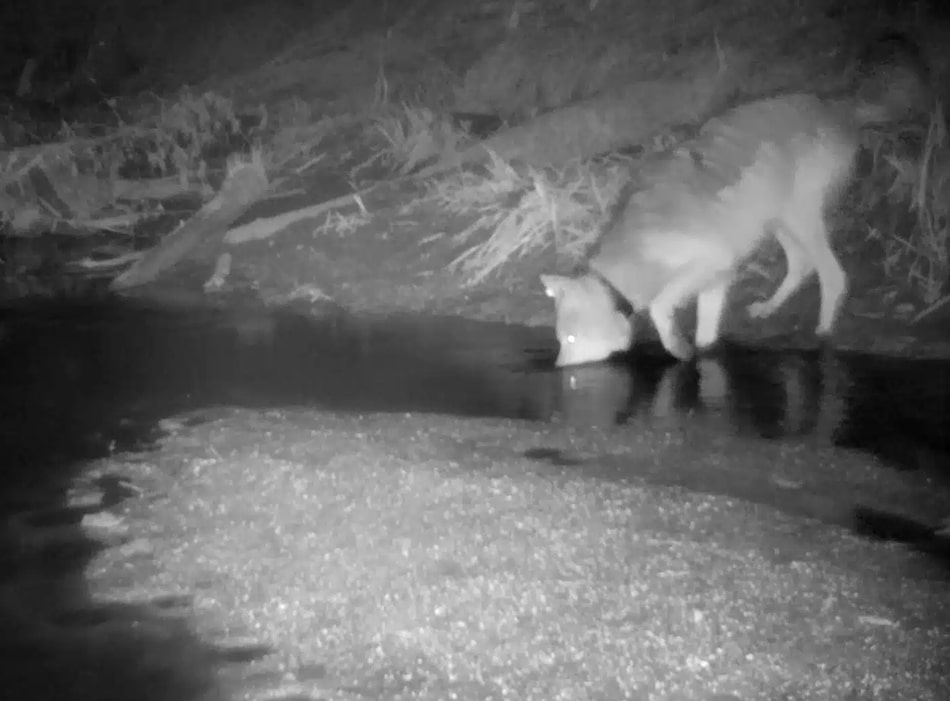
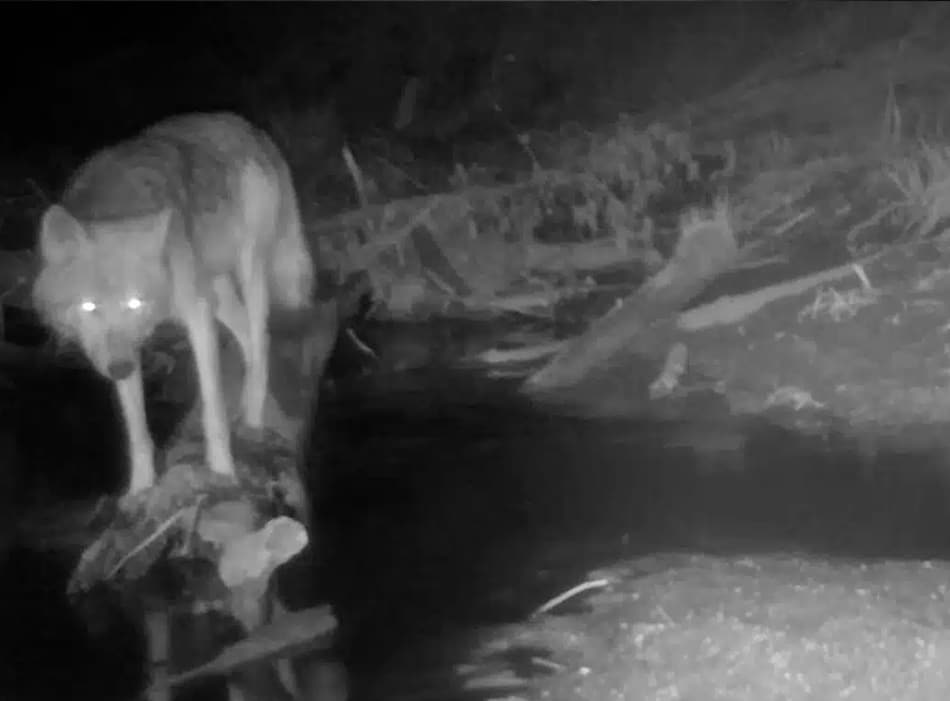
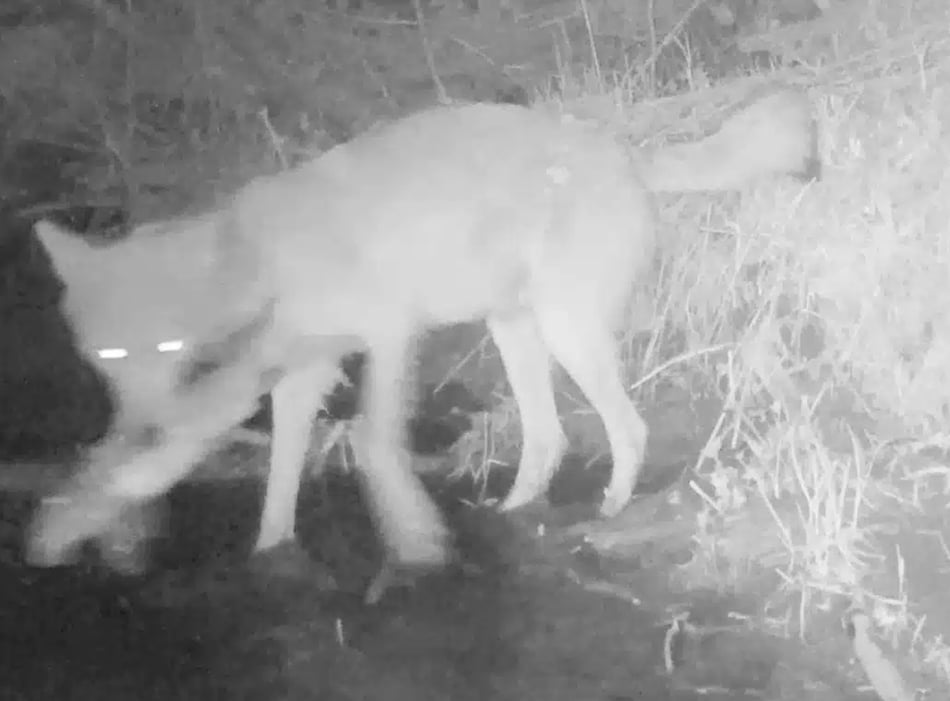
Five years ago, scientists in Voyageurs National Park documented for the first time wolves catching fish in freshwater streams. Now, they say additional research has shown the behavior seems to be common among packs in their study area. Based on their findings, the scientists also say it is likely common in other parts of wolf country.
Importantly, the fishing behavior seems limited to a short time of the year in the spring — when spawning fish swim up small creeks and are easily catchable by terrestrial predators. The brevity makes it difficult to study, but also points to how important the food source could be, as it comes at a time of year when other prey are harder to find.
The ecological connections also include beavers, the aquatic rodents that manipulate land and water in the boreal forest. The Voyageurs Wolf Project says beaver dams provide ideal places for wolves to fish. All told, they documented 10 wolves across five packs, fishing on four different streams.
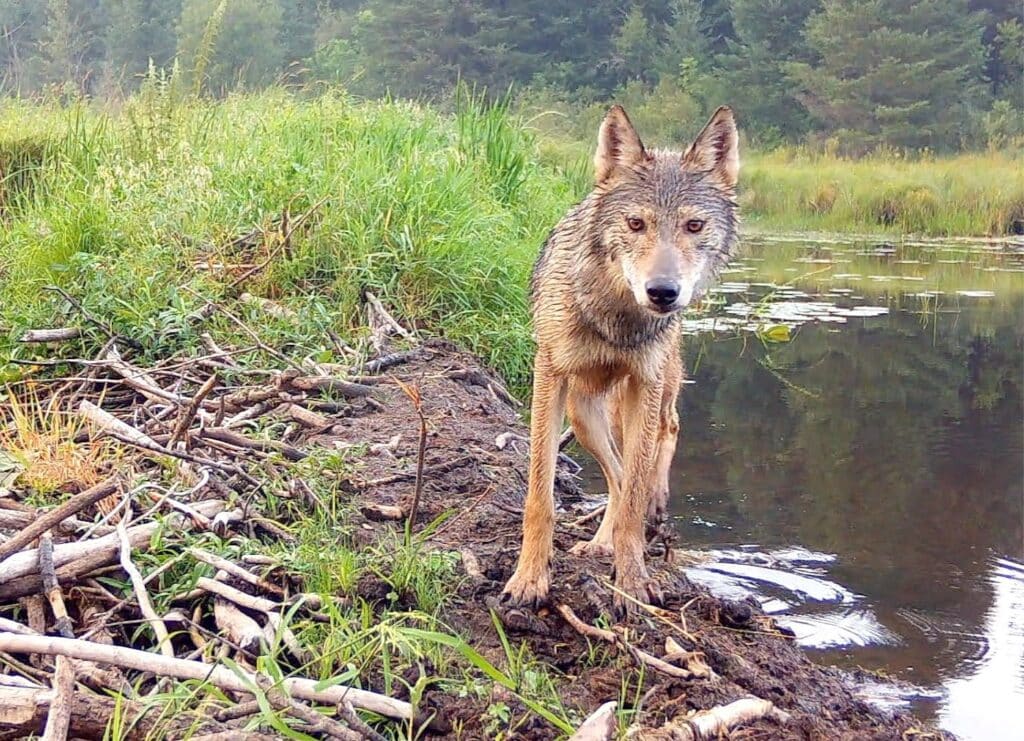
“When we first recorded wolves fishing in 2017, we thought it was a rare observation,” explains Dani Freund, lead author on the paper and collaborator with VWP. “But after observing males and females, yearlings and adults, lone wolves and pack members fish, we think that wolves hunt spawning fish across similar boreal ecosystems, and they likely have been doing it for quite a while. We don’t think it is a new behavior.”
New research confirms
The most recent findings were published in a peer-reviewed article in the journal Royal Society Open. They say wolves were observed fishing every spring for the past five years. The scientists used data from GPS collars on wolves and remote camera traps to study the behavior.

The GPS collars showed wolves spending lots of time along streams between April and June, hunting for fish at night. They often fished below beaver dams, where water is often shallow and the fish are blocked from moving farther upstream, causing them to accumulate in these areas.
“Wolves’ main weapon is their mouth, so going after prey such as deer can cause a severe injury,” explains Freund. “Fish on the other hand can’t do much to a wolf, and wolves seem to be taking advantage of that. Some wolves seemed to completely pass up larger prey such as beaver when fish were available and abundant.”
White-tailed deer are wolves’ preferred prey during much of the year, but are often difficult to hunt in the spring. Wolves have an advantage in winter, when the snow helps them hunt, and later in the year, they often prey on fawns. But, during a critical time when wolves need lots of food as they raise pups, fish are an important food source. The researchers reported finding fish remains at two den sites where pups were raised.
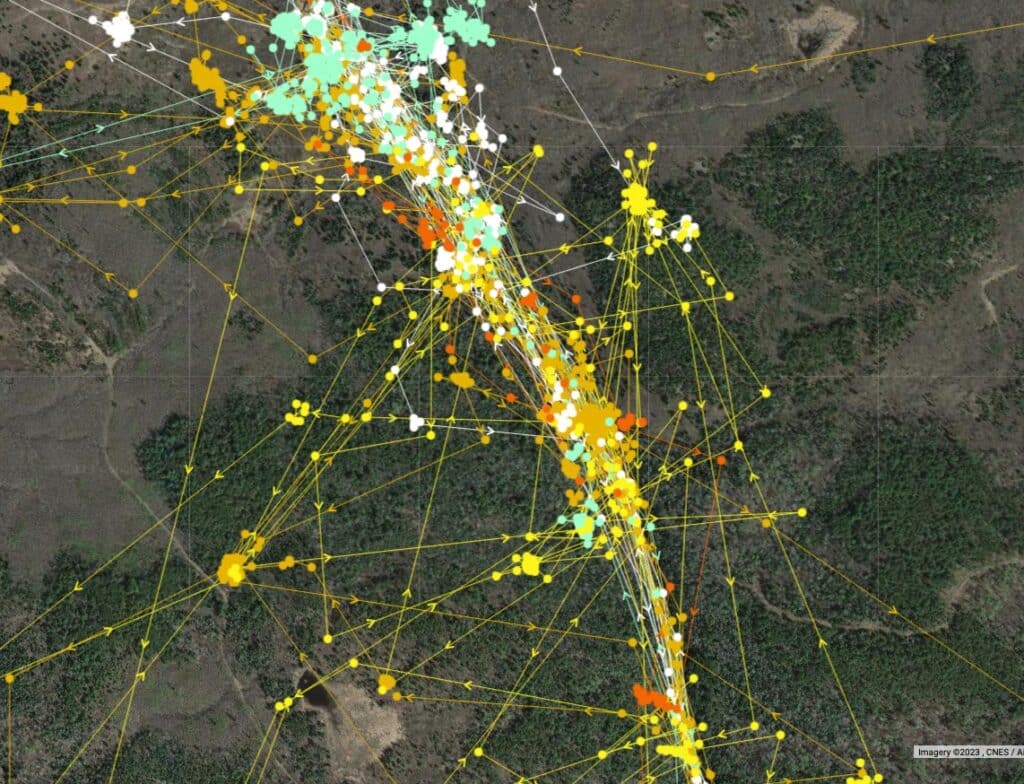
How wolves learn to fish
The scientists also say it appears wolves can both learn fishing from older pack members, or individual pack members can develop the behavior spontaneously, when they see fish swimming in shallow water. They say they saw multiple generations of one pack fishing from the same stream over the course of three years.
“Our observations indicate that fishing behaviour can develop individually or be learned from other pack members, providing insight into how fishing might arise and persist in wolf populations,” they wrote. One collared male wolf never fished until he became the breeding male of a pack, at which point he became the only wolf in the pack known to pursue piscine prey.
The wolves appear to prey primarily upon suckers, fish that most human anglers do not pursue. The fish species are often considered “rough” or even “junk” fish, but the new study shows the important role they play in the ecosystem.
Reference:
Freund Danielle R., Gable Thomas D., Johnson-Bice Sean M., Homkes Austin T., Windels Steve K. and Bump Joseph K., 2023 The ethology of wolves foraging on freshwater fish in a boreal ecosystem R. Soc. open sci.10230210230210 http://doi.org/10.1098/rsos.230210

